National Meeting on the RUR'UP Project Innovative Education for Sustainable Development in Peripheral Rural Areas
The national meeting on the RUR'UP project was held at the end of last week at the Sopharma Business Towers. It provided an opportunity for participants in the international project to share their experience and discuss the challenges and opportunities for education and peripheral rural areas.
%20RURup.jpg) |
%20RURup.jpg) |
Today's pupils are the workers, entrepreneurs, creators and the governing people of 2040 so the project is focused on creating active, educated and motivated people in rural areas who know their localities with their strengths and weaknesses and have the heart and stamina to work for achieving the vision. It is enshrined in the European Union's Vision 2040 for the future of rural areas.
Over the last two years a partnership of seven educational institutions and their associated partners from Bulgaria, Greece, Ireland, Romania, Finland, France and Croatia have been working together to develop and implement innovative educational training programmes addressed to the demands of peripheral rural areas in Europe under the RUR'UP project.
The leading partner for Bulgaria in the RUR'UP project is the Department of Economics of Natural Resources at UNWE and the Society for Territorial and Environmental Prosperity /STEP/ is an associate partner.
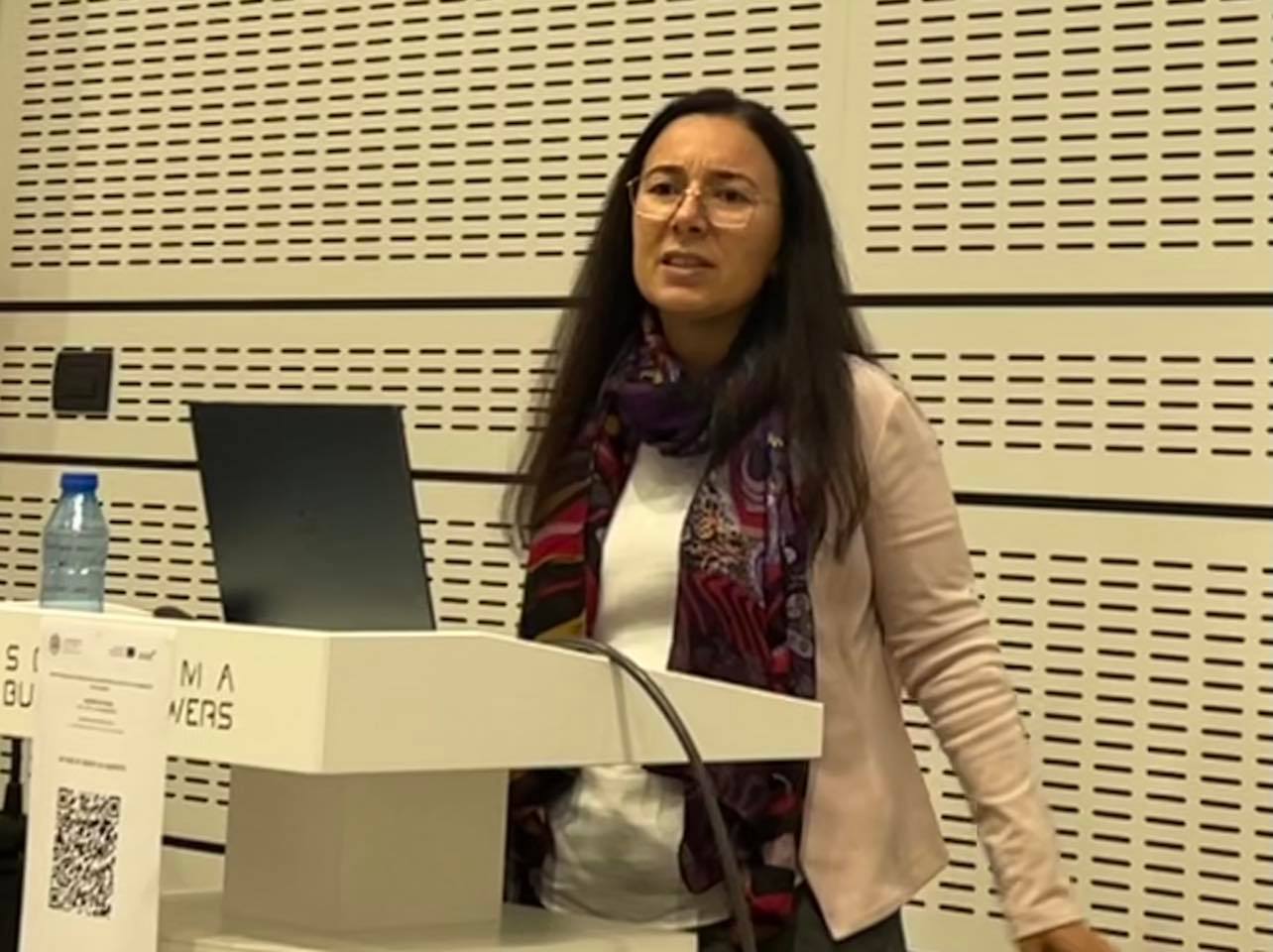 |
|
Assoc. Prof. Dr. Yanka Kazakova-Mateva |
"Peripheral areas play a crucial role in the vitality of rural areas in Europe. Their sustainable development maintains and enhances the environment, rural heritage and biodiversity and meanwhile it improves the socio-economic conditions and brings the communities in rural areas closer together", points out Assoc. Prof. Dr. Yanka Kazakova-Mateva from the Department of Economics of Natural Resources, Head of the project.
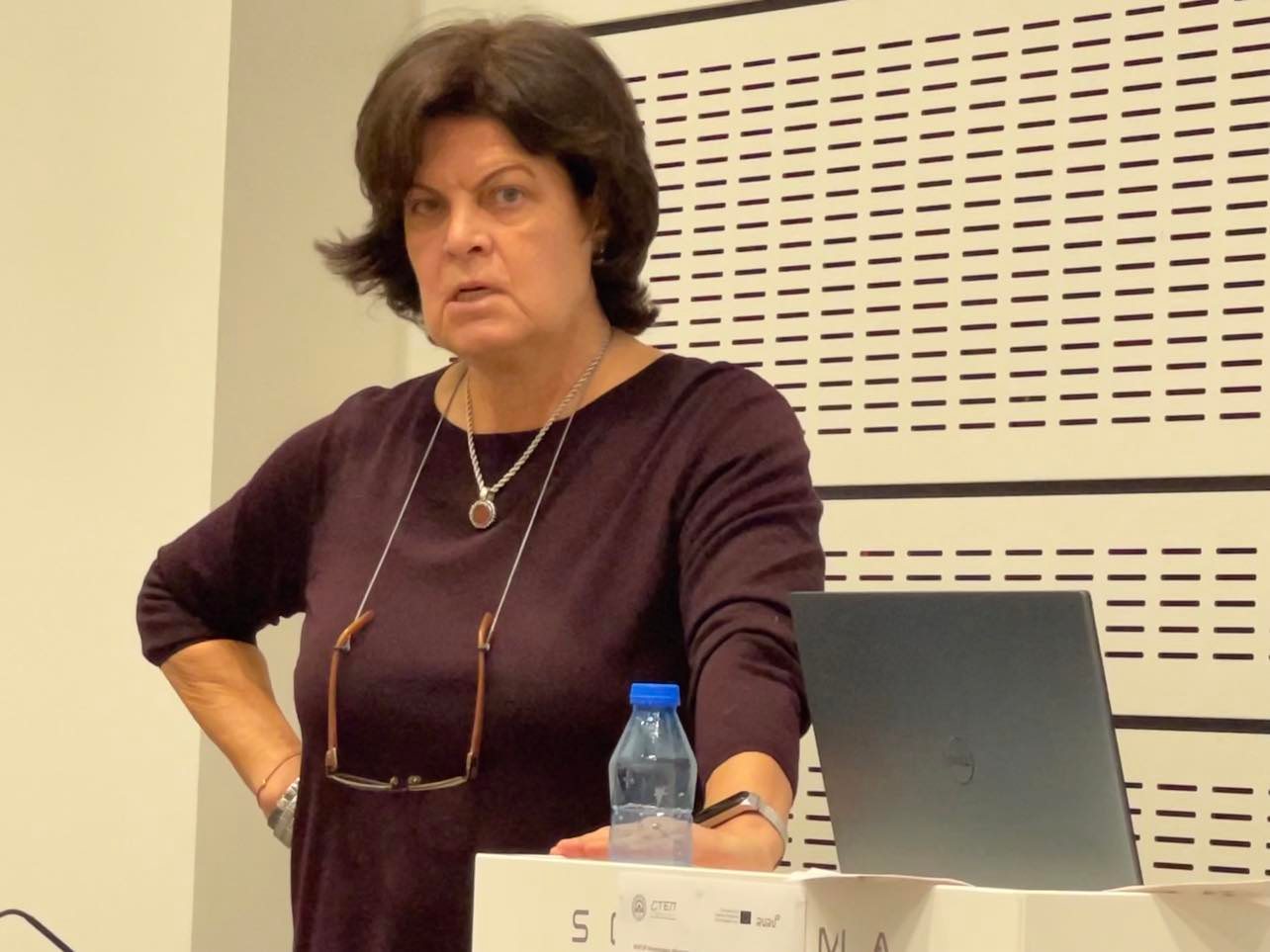 |
|
Mrs. Vyara Stefanova |
"The High Nature Value (HNV) farming and how to set it in the education of pupils and students is the main objective of our study", adds Ms. Vyara Stefanova from the Society for Territorial and Environmental Prosperity /STEP/.
The study reports that the peripheral rural areas include 46 municipalities which cover 2.8% of the territory of Bulgaria and during the analyzed period there was a "leakage" of young people under 15 from rural areas and a "concentration" towards the regional cities, especially Sofia. The closure of schools in rural areas and the continuing trend towards higher quality education in Bulgaria's 27 largest cities pave the way for further relocation and emigration of families with school-age children from rural to urban areas.
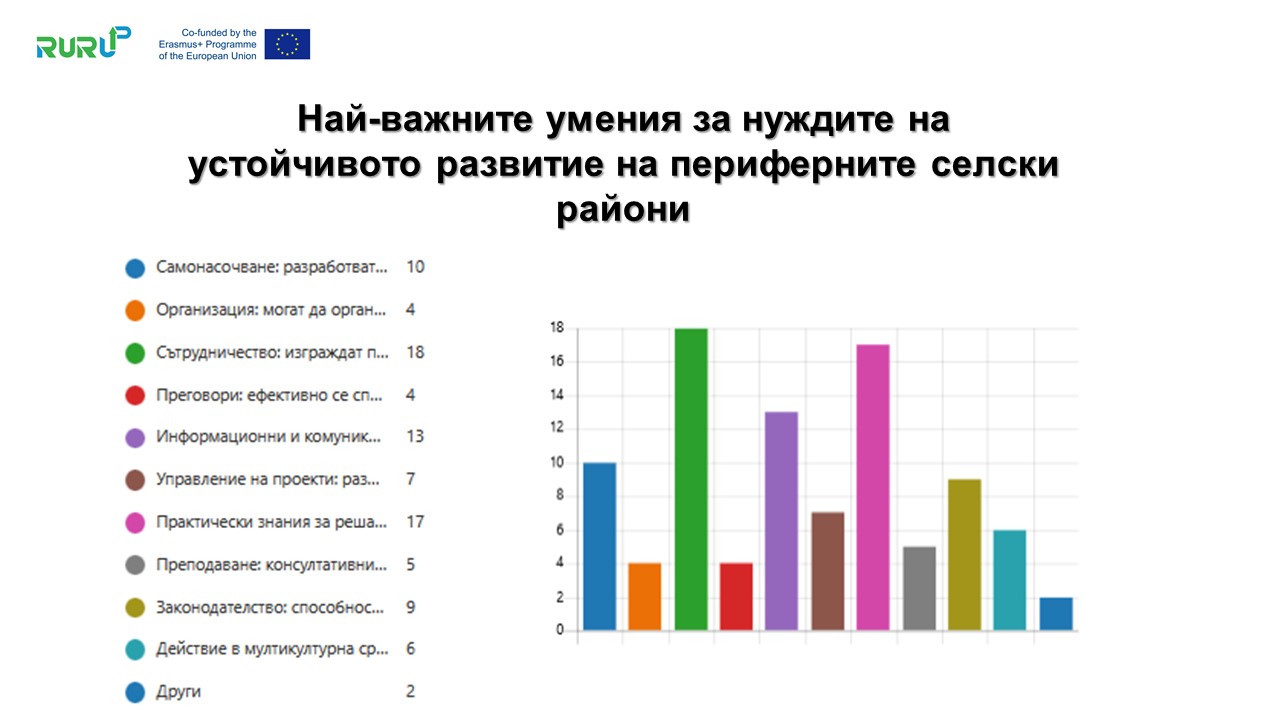 |
| An online survey conducted in 2021 identified the most important skills and competences that young professionals should have according to the perspective of stakeholders in peripheral rural areas |
One of the most important conclusions is the recognition of the necessity to develop programmes for students, experts and practitioners addressed to the needs of HNV farming and the territory as a whole.
"There are also extremely low educational outcomes in peripheral rural areas incomparable in other rural areas which threatens the capacity for any development that requires a skilled and educated workforce", outlines Assoc. Prof. Kazakova-Mateva.
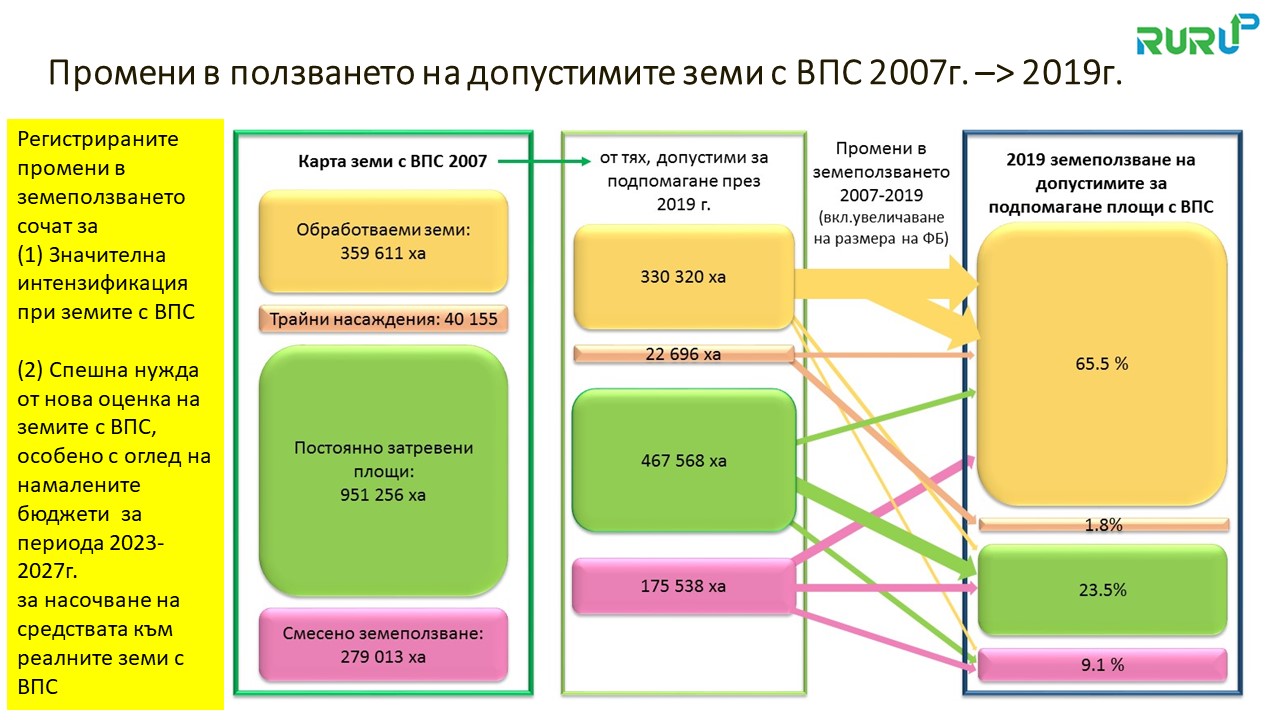 |
In the frameworks of the project are also examined the changes in the types of HNV farmland in 2007 as well as what is their current status. It was reported that even then the HNV farmland types were determined only on the basis of a desk study and no profound typology determination of farmland has been done since then. The current study reports that the largest reductions are seen in pasture and grassland mostly due to change in land use - reversion to croplands. It is reported the lack of 500 thousand hectares of pasture and meadow due to the abandonment of livestock farming.
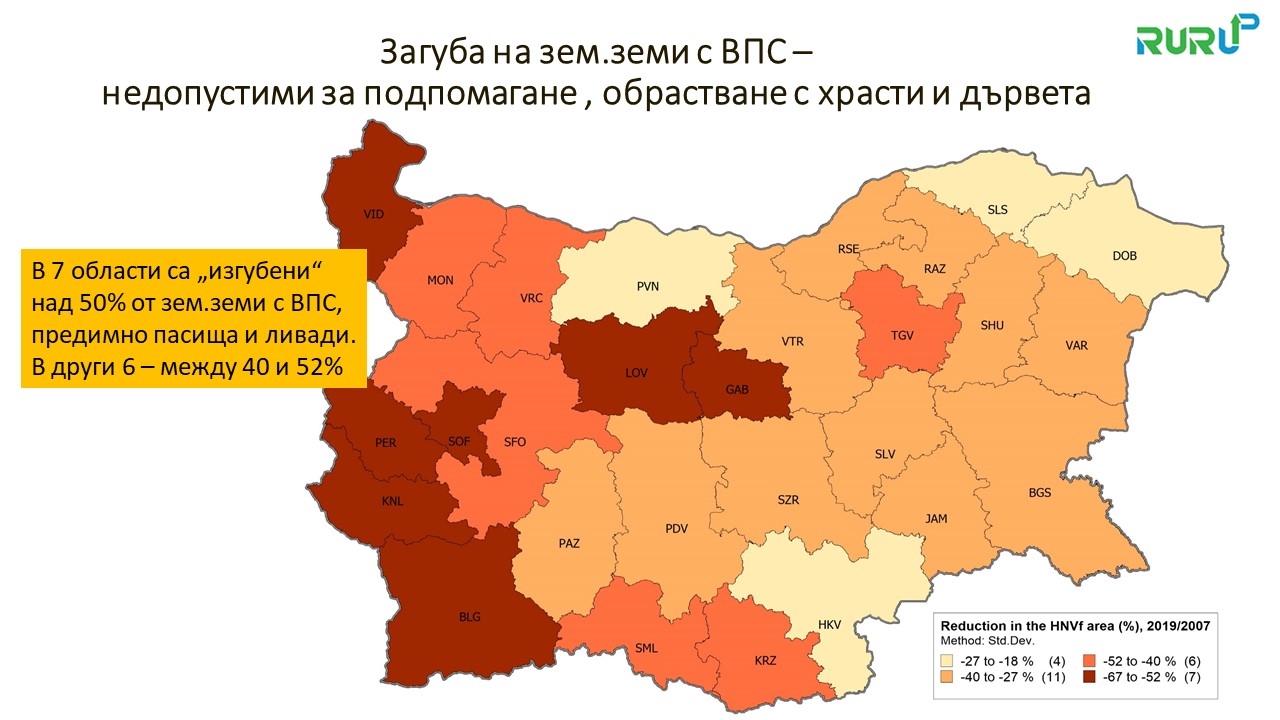 |